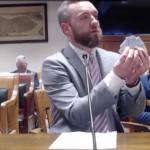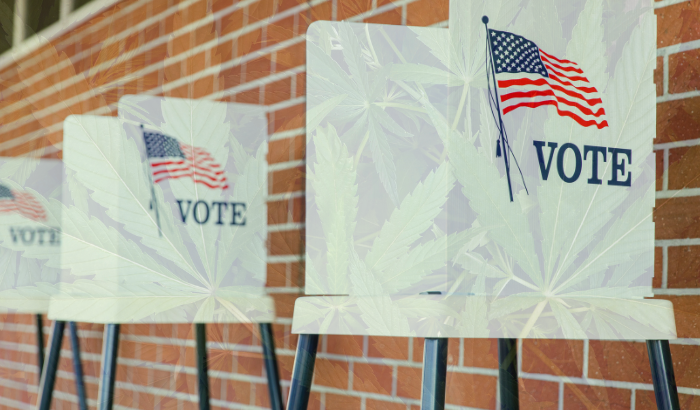
“If you don’t regulate to ensure good wages, then you won’t get them from the industry. … This is something that we should have already done to begin with.”
Taking a cue from some neighboring New England states, Massachusetts lawmakers are considering a pair of bills that would require cannabis operators to sign labor peace agreements (LPA).
“This is not a radical idea,” state Sen. Lydia Edwards said in her testimony before the Joint Committee on Cannabis Policy Tuesday. She is the sponsor of the Senate version of An Act to facilitate labor peace among the cannabis workforce; a similar bill on the House side is sponsored by Rep. Steven Owens. “This is something that many of our neighboring states already have. We are demanding that this industry not commit union busting.”
The bill would mandate that licensed cannabis operators sign an LPA with a local union on behalf of their employees. The agreements basically ensure that management will not interfere with organizing activity from unions. In return, the union and the workers agree to not strike.
The proposed legislation defines an LPA as “an agreement between a cannabis establishment and a bona fide labor organization that protects the parties’ interests by, at minimum, allowing union agents to inform and communicate with cannabis employees about their labor rights including, but not limited to, the right to form a union without interference from the employer in exchange for prohibiting the labor organization from engaging in picketing, work stoppages or boycotts against the cannabis establishment.”
New York, Connecticut, and Rhode Island all require similar forms of LPAs for cannabis operators.
“If you don’t regulate to ensure good wages, then you won’t get them from the industry,” Edwards said. “If you are privileged to be able to open and have a license, you will also not stand in the way of your workers trying to organize. This is something that we should have already done to begin with.”
Generally, the US Chamber of Commerce has argued that LPAs are a means for local governments to pressure companies into allowing concessions that a full-on union might otherwise fight for. On Beacon Hill this week, no representatives from any companies or trade groups came to testify in person against the bills, but there was plenty of support.
“I firmly believe that this bill is a crucial step toward creating a fair and inclusive cannabis workforce,” said Harry Jean-Jacques, founder and president of the Big Hope Project. His group’s mission is “to reduce the cycle of recidivism by providing direct-aid to communities disproportionately impacted by the War On Drugs.” He added, “I have witnessed first hand the challenges faced by individuals in marginalized communities.”
The commonwealth has already seen companies including Trulieve and Curaleaf spar with labor organizers, with such efforts resulting in complaints to the National Labor Relations Board.
In addition to backing the legislation, Jean-Jacques also urged legislators to update the bill’s language to properly define a labor union. In other states, so-called fake unions have reportedly emerged to help companies meet LPA requirements; numerous such entities were recently identified in California’s cannabis industry.
Several dispensaries and cultivations in Mass are already represented by either the United Food and Commercial Workers International Union (UFCW) or the American Federation of Labor and Congress of Industrial Organizations (AFL-CIO). Representatives from both unions came out to praise LPAs.
“Labor peace agreements ensure that workers can choose to form a union in a neutral environment without the employer’s influence,” said Gabriel Camacho, political director for the UFCW Local 1445. “Unions have been a historical and effective vehicle for marginalized communities to reach the middle class.”
“All workers deserve the right to organize into a union,” added Chrissy Lynch, chief of staff for the Massachusetts AFL-CIO. “This bill would require as a condition of licensure that a marijuana establishment enter into labor peace agreements.”























